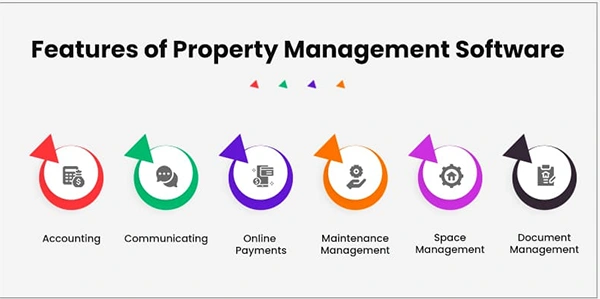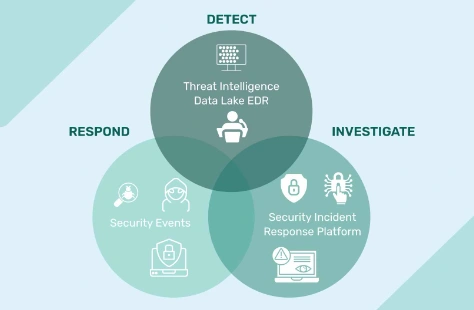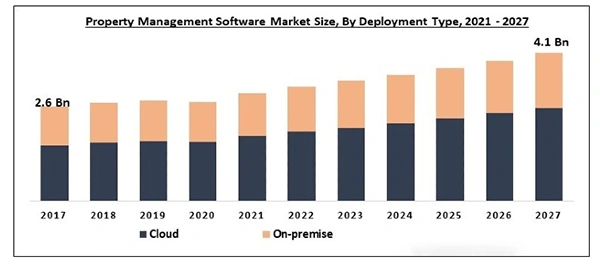The Impact of Cloud-Based Tenant Management Software on Real Estate Operations
Are you a busy property manager or landlord constantly juggling rent collections, maintenance requests, tenant screening, and compiling reports?
If yes, the increasing adoption of cloud-based tenant management software in the real estate industry could be the game-changer you’re looking for.
A cloud-enabled property management application uses the vast and flexible capacities of the internet to store and manage data.
This advancement allows real estate professionals to perform their complex work in much less time and from anywhere with an internet connection.
Thanks to cloud-based software, gone are the days of wading through piles of physical documents, manual data entry, and being tied to a computer or office.
The Impact of Cloud-Based Tenant Management Software on Real Estate Operations

The advent of cloud-enabled tenant management software and other useful landlord tools has brought about a significant shift in the landscape of real estate operations.
This technology’s effects span across several facets of property administration, leading to enhanced accessibility, improved efficiency, seamless communication, and robust data security.
Enhanced Accessibility and Mobility
One of the most prominent advantages of cloud-based applications is the unparalleled accessibility it offers.
Property managers can access valuable reports and tools from anywhere, anytime, using various devices such as smartphones, tablets, and laptops.
This level of mobility empowers real estate managers to respond quickly to rental inquiries, address maintenance issues promptly, and access vital information during location inspections.
It’s the essence of having your office in your pocket, offering the flexibility to manage your business on the go.
THINGS TO CONSIDER
To optimize the cloud costs, it is best to plan and forecast your demand and budget and select the right pricing model and service level agreement.
Improved Efficiency and Productivity
Cloud-enabled real estate management software also serves as a productivity booster for property managers.
By automating numerous processes such as rent collection, lease agreement administration, maintenance tracking, and financial reporting, these platforms simplify workflows and boost overall efficiency.
This newfound efficiency not only translates into considerable cost savings but also enables real estate managers to focus on delivering superior service to the owners.
Seamless Collaboration and Communication
A key feature of the cloud-enabled application is its ability to facilitate seamless collaboration.
These platforms serve as a centralized hub where real estate managers, tenants, and maintenance teams can communicate in real time, share information, and work collectively.
This enhanced communication fosters improved relationships, leading to stronger rental retention rates and more harmonious living environments.
Enhanced Data Security and Backup
Storing sensitive property and rent information on physical servers can pose significant security risks.
In contrast, a cloud-enabled application for real estate offers robust data security measures, including encryption and access controls, ensuring the reports remain protected.
Moreover, regular backups eliminate the risk of data loss due to hardware failures or unforeseen events, offering peace of mind to real estate managers.
DO YOU KNOW?
36% of commercial real estate dealers plan to invest in cloud computing and storage.
Overcoming Challenges and Concerns with Cloud-Based Tenant Management Software
While the impact of cloud-based software on real estate operations is overwhelmingly positive, it is relevant to address some of the challenges that come with implementing this technology.
These include concerns around data privacy and compliance, internet connectivity, and integration with existing systems.
Addressing Data Privacy and Compliance Issues

Data privacy is a key concern for any business that handles personal and financial information.
The latest software offers a robust solution for landlords grappling with the complexities of data privacy and compliance issues.
Firstly, these systems are typically designed in adherence to the latest data protection regulations.
This compliance is maintained through regular updates, which are managed by the application provider, thereby relieving landlords from the burden of keeping track of legislative changes.
Moreover, cloud-enabled systems employ advanced encryption and security protocols to safeguard tenant information, significantly reducing the risk of online breaches.
This is necessary in an era where the mishandling of personal information can lead to severe legal and financial repercussions.
Moreover, these systems often include consent administration tools, allowing landlords to easily obtain and manage rental consent for data usage, ensuring transparency and adherence to privacy laws.
Mitigating Internet Connectivity and Downtime Concerns
By leveraging the cloud, this application ensures that content and administration tools are stored on remote servers, providing consistent and reliable access regardless of local internet issues.
This is particularly beneficial in scenarios where landlords or property managers need to access rental information, financial records, or maintenance requests but are hindered by local internet instability.
Cloud-enabled systems typically offer high levels of redundancy and backup protocols, significantly reducing the risk of data loss due to local hardware failures or connectivity issues.
This means that even during periods of internet downtime, landlords can rest assured that their reports are safe and can be accessed from alternative locations or devices with internet access.
These cloud platforms often come with 24/7 support and automatic updates. This ensures that the system stays up-to-date and that any potential issues are promptly addressed, further minimizing the risk of downtime.
Integrating with Existing Systems
The tenant management application is designed with flexibility and compatibility in mind, allowing it to seamlessly connect with a variety of existing real estate administration tools and systems.
By utilizing APIs, these platforms can easily exchange content with other software, such as accounting systems, payment gateways, and maintenance request trackers.
This integration capability ensures that landlords can maintain their current workflows while benefiting from the advanced features of the new system, such as automated owner screening, lease administration, and real-time analytics.
Moreover, cloud-enabled solutions are typically built on modern, scalable architectures.
This means they can adapt to the growing needs of a real estate portfolio without requiring significant overhauls to the existing IT infrastructure.
This scalability is relevant for landlords who plan to expand their property holdings and require a system that can grow with them.
The Future of Cloud-Based Tenant Management Software in Real Estate
The world of property management is not impervious to the rapid progress of technological advancements.
As the demand for efficient and streamlined operations continues to grow, so does the need for innovative solutions.
The future of cloud-enabled applications in real estate will be shaped by the integration of advanced technologies and a commitment to delivering exceptional rental experiences.
The graph below shows the market size of the property management software since 2021 which is expected to grow further till 2027.

The Role of Advanced Technologies: Artificial Intelligence, Machine Learning, and Predictive Analytics
Emerging technologies such as Artificial Intelligence (AI), Machine Learning (ML), and Predictive Analytics are poised to play a significant role in the next generation of cloud-enabled platforms for real estate.
These technologies can automate and improve various aspects of property administration, from screening owners searching for apartments for rent to predictive maintenance.
AI and ML can help manage and analyze large volumes of reports, enabling real estate managers to make informed, data-driven decisions.
For example, predictive analytics can forecast rental market trends or identify potential maintenance issues before they become costly repairs.
This level of insight and automation allows managers to operate more proactively and efficiently.
Delivering Exceptional Tenant Experiences and Making Data-Driven Decisions with Cloud-Based Software
In the age of the customer, delivering exceptional rental experiences is more relevant than ever.
Cloud-based tenant management software is designed not only to streamline operations, but also to enhance the rental experience.
From the convenience of online rent payments to the ease of submitting maintenance requests, we aim to make renting as hassle-free as possible for tenants.
Also Read: How Tech Makes Property-Management Easier
